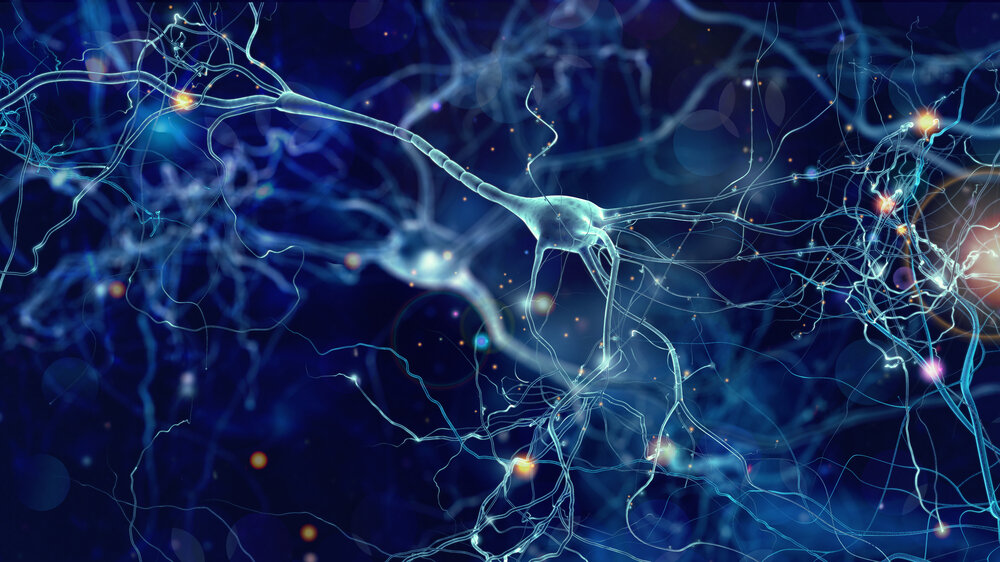Parkinson’s disease is a condition where the cells that produce dopamine, an important neurotransmitter, become damaged.
This results in lowered dopamine levels throughout the brain. It causes tremors, difficulty moving, and muscle stiffness.
Some recent evidence suggests that gut health could be a major cause.
Parkinson's disease is a chronic degenerative disease, which usually begins around age 60.
Currently there are no cures for the disease, and diagnosing it can be challenging.
Why Is Parkinson’s So Hard to Diagnose?
The reason Parkinson’s is so difficult to treat is because there are no real markers for it in the blood stream.
The process taking place is happening deep within the brain within the basal ganglia. This is not an area of the body that can be easily monitored. The few scans we have to check these areas of the brain, will not show any signs of damage until later stages of the disease.
What Causes Parkinson’s?
This is an area that's been highly debated over the years, and even to this day, nobody really knows the root cause.
What we do know, is that one of the hallmarks of this specific condition involves a buildup of a material known as synuclein around the basal ganglia of the brain.
These form large clumps which interfere with the ability for the neurons to function normally. It will eventually lead to their demise. When the neurons in this region of the brain begin to die, dopamine production takes a sharp drop, and communication throughout the brain becomes much more difficult.
The Gut Connection
In 2006, a paper was released that identified these synuclein fibers in the nerves of the gut of patients with symptomatic Parkinson’s, as well as those not showing symptoms. This lead researchers to hypothesize that Parkinson’s disease doesn't necessarily originate in the brain itself.
An interesting mention is that many Parkinson’s disease sufferers say they have suffered chronic gastrointestinal complaints long before the diagnosis of Parkinson’s disease.
A more recent study out of the California Institute of Technology has actually confirmed this is possible. The team injected the stomachs and intestines of mice with synuclein fibers and watched over the course of 2 months as they traveled up into the brain, settling directly in the targeted basal ganglia of the brain. The mice were reported to lose a lot of their agility as well, a common finding in those with Parkinson’s disease.
What Does This Research Mean?
The idea that a neurological condition like Parkinson’s could originate in the gut will mean significant changes in the way it's diagnosed and could shed some light on what sort of prevention might be possible.
If the disease is proven to be gut bacteria related, treatments aimed at establishing healthy gut bacteria could be the first line of treatment and prevention. Some people have already begun experimenting with faecal transplants and antibiotic treatments in an attempt to treat Parkinson's. These methods aim to restore the microbiome balance in the gut.
Although gut bacteria has not been directly linked to Parkinson’s, it has been shown that the gut bacteria are different in affected individuals than normal people.
Other clues lie in the history of Parkinson's patients who report long-term poor gut health before diagnosis. The fact that scientists have been able to trace the synuclein fibers as it travels from the gut to the brain (via nerves), is significant in this respect.
It’s likely that poor gut health, or certain gut bacteria, can trigger the synuclein to begin forming tangles. This starts a chain reaction as it travels to the brain in as little as 2 months time (in mice).
There have been suggestions that patients who have had the main stomach nerve cut as a treatment for ulcers have a much lower incidence of developing Parkinson’s, further driving the idea home.
The results of this research highlights a significant development in the way we view Parkinson’s disease. By addressing the gut as a possible cause for the condition, we may be able to weed out some new and innovative ways of testing for this debilitating condition and find new ways to prevent it from happening in the first place.
Suggestions for New Treatment Research
1. The Gut
The main place to start is the gut health. The gut is a highly complex tissue, and a careful balance is needed to maintain the health of this region of the body. All kinds of secondary diseases have been found related to the health of the gut including heart disease, cancer, depression, low libido, autoimmune disorders, multiple sclerosis, and now quite possibly Parkinson’s disease.
By finding what strains are associated with Parkinson's, and what strains have the lowest incidence of Parkinson's, we may be able to make potent preventative treatments in the form of probiotics and targeted antibiotic therapies.
2. The Nerves
We know that Parkinson’s can travel up the nerves, and is fundamentally a malfunction of the nerves. Fortunately, there exists a large class of herbs and other substances that protect and repair the nerves. These are collectively called the nervines.
Some of the best nervines that may be specific to Parkinson’s based on these findings are those that directly address the synuclein fibers of the nerves. This includes the constituent curcumin, from turmeric.
There are likely a myriad of other substances that hand protect from synuclein malfunction, or may even reverse it. More research is needed to identify these compound in the future.
Recent Blog Posts
Reference:
Heiko Braak, Rob A.I. de Vos, Jürgen Bohl, Kelly Del Tredici, Gastric α-synuclein immunoreactive inclusions in Meissner's and Auerbach's plexuses in cases staged for Parkinson's disease-related brain pathology, Neuroscience Letters, Volume 396, Issue 1, 20 March 2006, Pages 67-72, ISSN 0304-3940, http://dx.doi.org/10.1016/j.neulet.2005.11.012.











